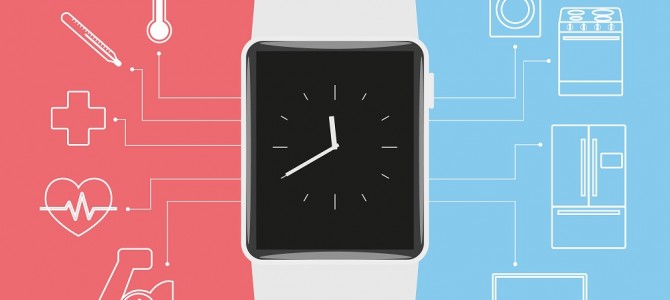The Apple Watch isn’t even available yet, and it’s already received a plethora of criticism. It’s too expensive, it’s elitist, it adds a new product without replacing an old one—the list goes on and on. It hasn’t solved any problems yet, and years could pass before it can cure cancer! What the critics don’t realize (probably because tech writers are mainly male) is that wearable technology is a small step for the tech community, but a giant leap for gender equality, or at least women who own smartphones.
One of the best traits of the free market is innovative problem-solving. Companies and individuals are constantly inventing new products to replace or improve existing models. However, sometimes it seems like these new inventions really aren’t all that essential. Necessity used to be the mother of invention, but in the twenty-first century we adopt inventions for convenience. After all, convenience is what led Hillary Clinton to set up a private email server. Convenience is also the driving force behind the new Apple Watch.
Pockets Can Be Sexist
Smart watches in general may have solved a niche gender-related issue: the pocket problem. Phone screens have now grown so large they can no longer occupy the slim pockets designed for women.
Sometimes women’s clothing doesn’t have pockets at all. This leaves a woman with a devastating decision: she must carry her smartphone in her hand or tuck it away in her purse, where she cannot hear or feel notifications. When not carrying a purse, she must either hold her phone or leave it behind. This great dilemma has recently drawn the ire of numerous feminist writers. But is the pocket predicament really worth agonizing over
Wearable technology might rescue women from having to tote enormous phones around in their hands. Maybe the size of the latest and greatest in phone technology isn’t a pressing concern for gender-equality activists? Whether smart watches solve the pocket problem or become a forgotten chapter of tech history is ultimately not a big deal. The extremely overstated outrage over something as small as pockets is a more concerning issue than the actual pocket problem.
Empowerment: A Better Solution Than Complaining
Gender inequality can be a real concern, but the issues and microagressions feminists see at every turn are not. Two of the more childish complaints about the iPhone are that it pulled on long hair and was susceptible to being smeared with makeup when rubbed against a woman’s face. These are both easily remedied with a set of headphones or a bluetooth device. Alternatively, one could just complain on the Internet about iPhones’ sexist nature.
Is the presence or absence of pockets going to radically change our lives? If such a small feature has such disproportionate power, maybe we should find a solution. Empowerment is an effective alternative to complaining. Some options include: designing a better dress, buying men’s pants, buying a smaller phone, buying women’s clothing with pockets (like boyfriend jeans), or investing in a wearable phone accessory, like a smart watch.
Technology and fashion are constantly developing, and today’s problem could be a laughable story to regale children with in ten years. What if we cared as much about gendercide as we do about pockets? Few, if any, women will be substantively held back by the size of their pockets. When major problems like child marriage and sexual slavery exist, relatively minor problems shouldn’t receive so much time and attention. If several small inconveniences are enough to provoke righteous wrath, how can writers expect to be taken seriously when they speak on an issue of gravity and import?









